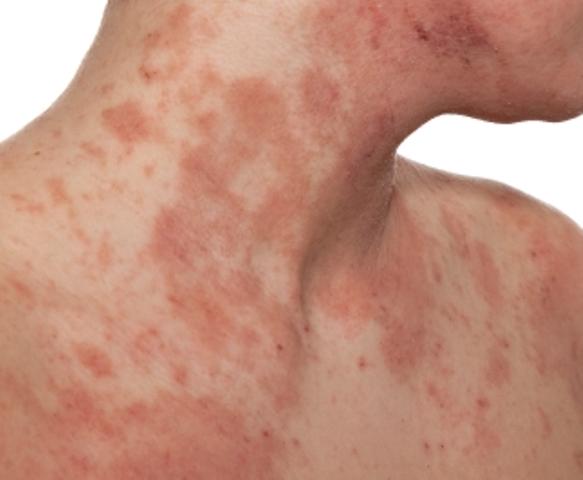Eczema is a general term used to describe any dry scaling, inflamed, condition of the skin, typically associated with itching. The term eczema is typically used inappropriately to name a unique condition with a specific cause, most likely due to the fact that treatments for these conditions are very similar. There are many forms of eczema, common types include:
 Atopic eczema
Atopic eczema
The most common type of eczema is atopic dermatitis. Atopic refers to an allergic tendency, which is generally inherited, associated with eczema.
Hand eczema
Another general term, Hand eczema is used to describe a multitude of conditions including; irritant, contact and dyshidrotic forms of eczemas.
Foot Eczema
Severely chapped soles of the feet usually associated with painful cracks or fissures. Although one foot may be more severely affected than the other it is uncommon for only one foot to be involved.
Asteatotic Eczema
A distinctive form of eczema that tends to be seasonal, associated very dry, cracked skin with a tendency to weep.
Allergic Contact Dermatitis
Eczema caused from a hypersensitivity to substances like Poison Ivy (plant/rhus) or Nickel (metal)
Irritant Contact Dermatitis
Eczema caused by a single exposure to a strong irritant (Solvents or acids) or repeated exposure to mild irritants (water, soap, heat or friction).
Treatment of Eczema:
The key component in controlling eczema is identifying/removing the trigger and proper skin care. A good moisturizer, in cream, lotion or ointment form helps to maintain skins natural moisture.
Call today to schedule an appointment with Dr. Scott Friedman in order for them to assess your condition and determine which treatment would best benefit you.
